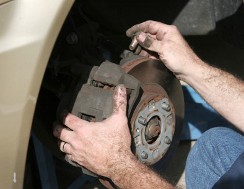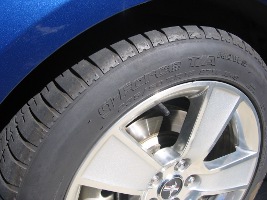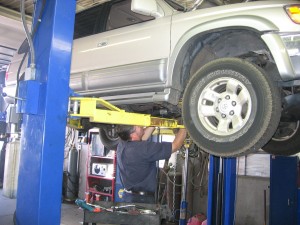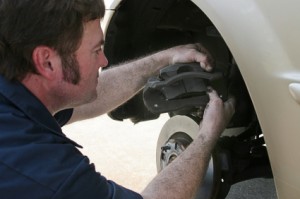When you’re driving in your car, and push down on the brake pedal, we unconsciously know it’s going to work. But how does it work? And more importantly, what do you watch for to make sure they keep working for you? Those are questions a brake specialist deals with every day. 
Your car’s brake system is a complex system of parts and components that spreads all along your car. The easiest way to avoid brake failure is to maintain your car, and to listen to your car’s system regularly. Your brakes squeak, click and grind – its just a matter of listening and discovering when the noise changes. And using a brake specialist to keep you on a regular maintenance schedule.
In your car, the brake pedal is connected to the pistons, and the pistons are connected to the brakes. Your car will have two sets of brakes: disc front brakes and drum rear brakes. In both sets, friction is used to control and stop the car when you require them. Several things can interfere with the friction, leading to failure:
- An oil leak can eliminate the friction within the braking system
- If brakes routinely overheat, they can create hard spots in the brake rotors or drums. These hot spots resist friction, reducing the grasping mechanism within the brake system.
- A squeaking noise can indicate thin or wearing brake pads. Replacing brake pads early can prevent future maintenance. If pads wear down to the rotors, it can cause further damage, and cost even more to replace.
Take notice of your cars messages. Your anti-lock brake system (ABS) light will come on at the first sign of damage. You may also start hearing squeaking or grinding noises when you apply the brakes. Or you begin to feel a pulse in your brake pedal, or a pull or grab to one side or the other during the braking process.
Instead of waiting or ignoring the problem, check in with your brake specialist today.
For all of your Denver Auto Repair needs, trust Express Car Care. Call (303) 691-2760 or stop by our shop today.






 and to listen to your car’s system regularly. Your brakes squeak, click and grind – its just a matter of listening and discovering when the noise changes. And using a brake specialist to keep you on a regular maintenance schedule.
and to listen to your car’s system regularly. Your brakes squeak, click and grind – its just a matter of listening and discovering when the noise changes. And using a brake specialist to keep you on a regular maintenance schedule.